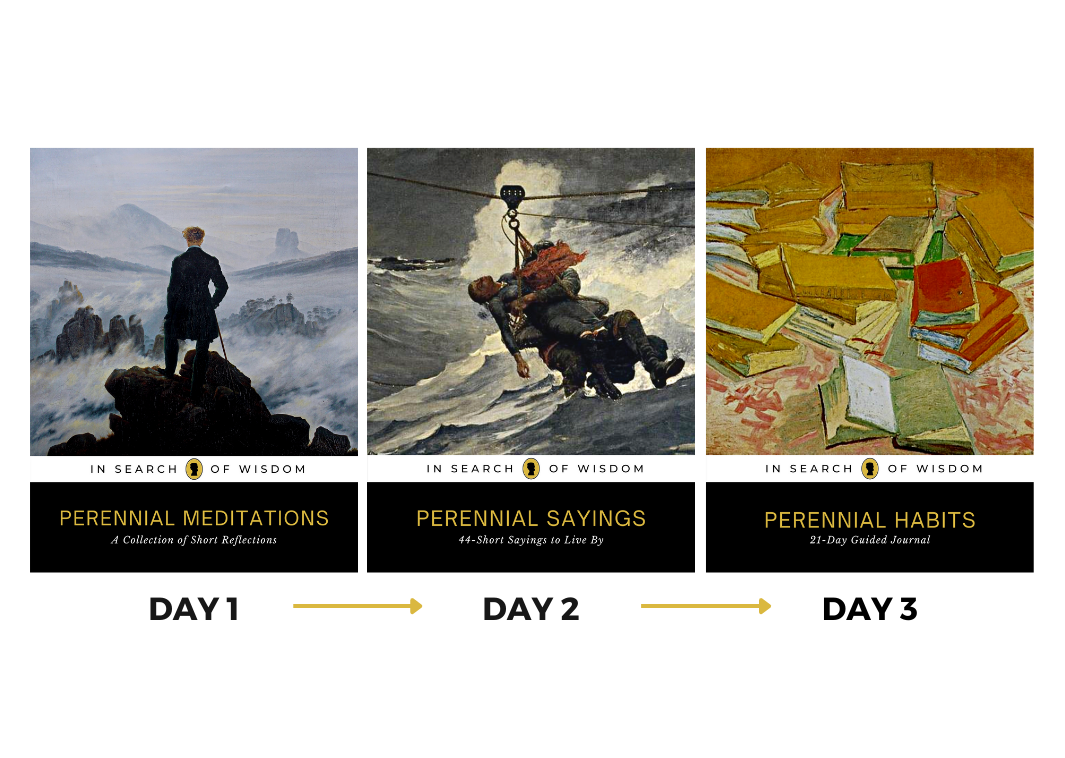What is Wisdom? | How to Become Wiser, Faster
What does it mean to be wise?
This is a question that authors Dr. Dilip Jeste and Scott LaFee set out to answer in the book Wiser: The Scientific Roots of Wisdom, Compassion, and What Makes Us Good.
In a conversation with Dr. Jeste, he explained that we all have the capacity to cultivate wisdom and accelerate its unfolding.
Defining Wisdom
"Wisdom is not intelligence. It is more, much more." Dr. Dilip Jeste
There seems to be a universal desire to be smart. However, many intelligent people are not necessarily happy or wise. Also, being wise is significantly more helpful, primarily if we aim to lead a full and meaningful life.
Humans have an evolutionary need to be wise. The scientific term for Homo sapiens in Latin is "wise man." Although the need for wisdom and its benefits are more prevalent than ever, becoming wiser is a process.
"No one was ever wise by chance.
At least, that's how the Philosopher Seneca put it."
An exhaustive search across the literature and ancient traditions Dr. Jeste writes, reveals a general sense that "wisdom is a complex trait comprising several components."
Prosocial Attitudes and Behaviors – These consist of behaviors like empathy, compassion, and altruism. Empathy consists of our ability to understand and share another's feelings, with compassion being the act of turning your empathy into helpful behavior towards the other person. Altruism consists of actions to help another person without expecting any external reward.
Emotional Stability with Happiness - This component includes maintaining self-control while favoring positive emotions over negative ones.
Balancing Decisiveness with Acceptance of Uncertainty – The acceptance of uncertainty consists of acknowledging different perspectives exist and that things change, including one's deeply held thoughts and beliefs. Although uncertainties of life exist, one must act when action is called based on the information available.
Reflection and Self-Understanding – Dr. Jeste asks, "Are you able to analyze yourself and your motivations, your strengths, and weaknesses? Understanding oneself is much more difficult than people think."
Social Decision-Making and Pragmatic Knowledge of Life – This component relates to the capacity to share life knowledge and skills.
Spirituality – The concept of spirituality is not the same as religiosity but refers to a belief in something more significant than the individual and the society. "Spirituality can include religion, but it can mean and embrace much, much more."
Life Lesson at the End of Life
"Let no one be slow to seek wisdom when they are young nor weary in search of it when they have grown old. For no age is too early or too late for the health of a soul." – Epicurus
At the end of life, there can often be a final clarity. During this time, people tend to "become increasingly selective about what's meaningful in life and how they should spend their dwindling days."
While individuals received hospice care for a terminal illness, they were asked to define wisdom and if their perspective had changed. Their responses on wisdom revealed all of the major recognized themes of wisdom: prosocial attitudes, knowledge of life, being active, emotional regulation, positivity and gratitude, openness to new experiences, acknowledgment of uncertainty, spirituality/religiosity, and self-reflection.
Becoming Wiser Faster
"It is not by muscle, speed or physical dexterity that great things are achieved, but by reflection, force of character, and judgment." – Cicero
Becoming wise requires all of the components of wisdom to a certain degree. However, the first step towards wisdom demands honest self-reflection. You must know which components of wisdom you are strong in and which you are not. The act of self-reflection improves our decision-making and helps us to overcome biases that influence our choices. Self-reflection also enables our ability to consider decisions in the context of ourselves and the environment.
Practical tips to become more reflective:
Create a reflection process that works for you. It might be writing down your thoughts, dialogue with a trusted friend, or long walks alone.
There are many ways to be reflective; the key is scheduling time for reflection. It could be as short as a few minutes each day. Consider possibilities and perspectives while trying to look beyond the obvious. You do not have to agree with the thought; you only need to examine it. Remember the sage advice from Aristotle, "It is the mark of an educated mind to be able to entertain a thought without accepting it."
Just as we can become more proficient at reflective behaviors, the same is true for all of the wisdom components. Research reveals we can cultivate and improve our empathy and compassion, emotional regulation, and decision-making through various practices like meditation, mindfulness, prosocial activities, and so much more.
Final Thoughts
"Day by day, what you do is who you become." – Heraclitus
The opportunity to leverage our wisdom is part of everyday life. Wisdom influences our perspectives (or mindsets), principles, and the practices we embody. Becoming wise is a process, but we can accelerate its unfolding "day by day."
Interested in Learning More? | Sign up for our Daily Meditations.
Subscribe to Perennial Meditations to receive timeless principles and practices for everyday life right in your inbox. Sign up today and get our Wisdom 101: An Introduction to Ancient Lessons for Modern Life to help you start living your highest good. You’ll receive the following free bonuses and join a growing community of seekers and curious minds in search of wisdom.







